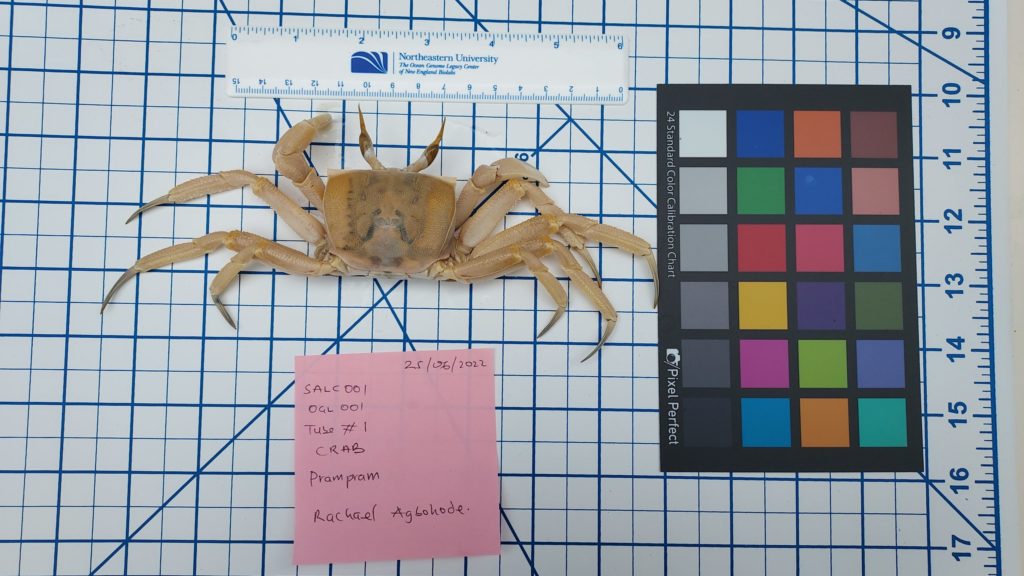Ocean Genome Legacy (OGL) is excited to announce our newest collaboration with the Sena Institute of Technology (SIT), a multidisciplinary research center in Ghana that promotes cutting-edge research across the African continent and creates opportunities for everyone—but particularly young people—to do basic and fundamental science. President and co-founder of SIT, Dr. Kwasi Agbleke, PhD, met with OGL staff earlier this summer and brought back an “OGL in a Box” kit to Ghana on his last trip. He then brought a team of researchers out to the coast of Ghana—from Denu in the Volta Region to Cape Coast in the Central Region—to collect specimens.
Dr. Agbleke is working with local taxonomists and fishermen to identify both scientific names and local Ewe names for the organisms they collect. African marine environments are not well represented in either the OGL collection, or in global data sets, so the collection of these specimens and data is particularly exciting!


OGL and SIT are now working to set up mirrored collections at both institutions. In a mirrored collection, duplicate samples are kept in multiple locations, providing more secure storage and wider access to valuable samples. The collection at SIT will become part of the sub-Saharan African Genome Repository, which is an important resource for providing African researchers with biomolecular materials locally. Additionally, these biodiversity collections will be used to train high school and college students in STEM fields, as SIT wants to encourage students to be engaged in the thrill of discovery at an early age.
We are excited to be embarking on this new collaboration. Want to contribute to collections in Ghana? Support OGL here.
